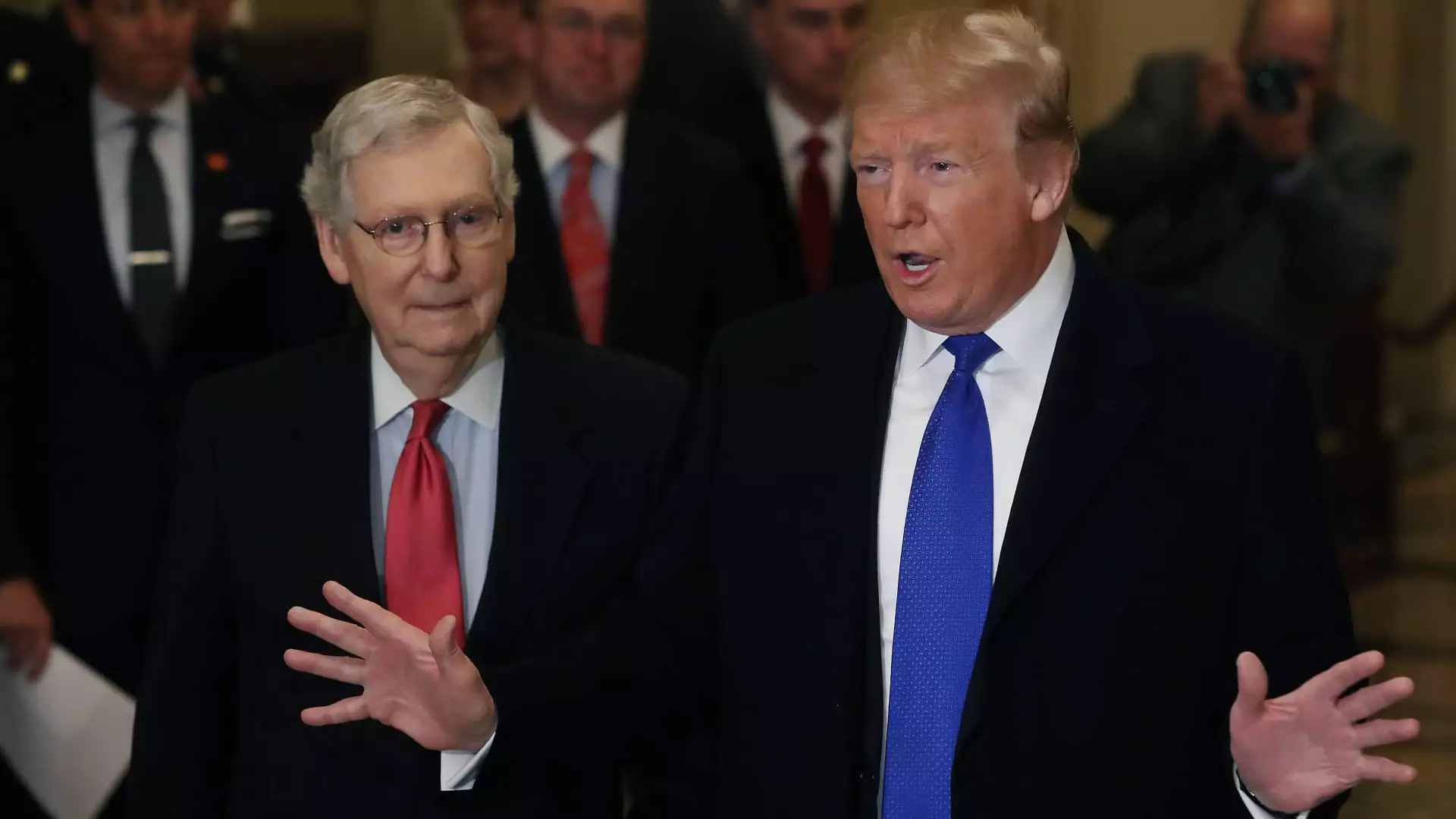As the United States navigates turbulent economic waters, internal dissent is emerging within the Republican Party regarding President Donald Trump’s aggressive tariff strategy. The spotlight is particularly on Senate Minority Leader Mitch McConnell, who has taken a rare stance against Trump’s protectionist measures. This discord raises critical questions about the potential ramifications of trade wars with key U.S. partners, as McConnell warns that such economic policies could lead to increased costs for American families and businesses alike.
Warnings from a Veteran Senator
In an op-ed published in the Courier-Journal, McConnell articulates his concerns regarding Trump’s sweeping tariff proposals. Highlighting the risks posed to American workers and industries, he emphasizes the long-term consequences of inciting trade conflicts with allies like Canada and Mexico, as well as with major economies such as China. With tariffs now a staple of Trump’s vocabulary, the implications extend beyond mere economic metrics; they threaten the stability of small businesses and households across the nation. This critique is significant, given that it emerges from a senior figure in a party traditionally aligned with the principles of free trade.
McConnell’s position resonates particularly in his home state of Kentucky, where a significant portion of the economy hinges on international trade. The senator underscores the plight of Kentucky’s agricultural sector, with around 75,000 farms relying on the sale of their goods in foreign markets. Moreover, the state’s auto industry, intricately connected to global supply chains, stands to suffer under the weight of these tariffs. As McConnell notes, fundamental staples of Kentucky’s economy, including the bourbon industry, are poised to take a hit. In 2023, the state’s distilleries produced 95% of the world’s bourbon—a notable statistic that underscores the global nature of Kentucky’s economic landscape.
McConnell candidly recognizes the gravity of the border crisis, advocating for a serious approach from neighboring countries. However, he firmly maintains that implementing blanket tariffs is a misguided policy choice that could counteract goodwill and exacerbate economic difficulties. Tariffs not only inflate costs for consumers but threaten to destabilize the supply chains upon which countless American jobs depend. In his words, “Blanket tariffs make it more expensive to do business in America,” a sentiment that resonates across party lines, urging a reassessment of current economic strategies.
As McConnell steps back from leadership after almost two decades, his criticisms highlight the evolving relationship between traditional conservative values and the populist sentiments espoused by Trump. The chasm between McConnell’s pragmatic approach and Trump’s more aggressive rhetoric raises important discussions about the future direction of the Republican Party, particularly as they prepare for potential electoral battles ahead. While McConnell’s endorsement of Trump in the past indicates a complex relationship, his recent critiques expose the underlying tensions that could define GOP dynamics in the coming years.
As trade policies continue to shape national discourse, it is critical for Republican leaders to navigate these waters thoughtfully. McConnell’s public stance serves as both a cautionary tale and a potential pivot point for reevaluating the core economic principles that could fortify the party’s unity and bolster the American economy moving forward.



Leave a Reply